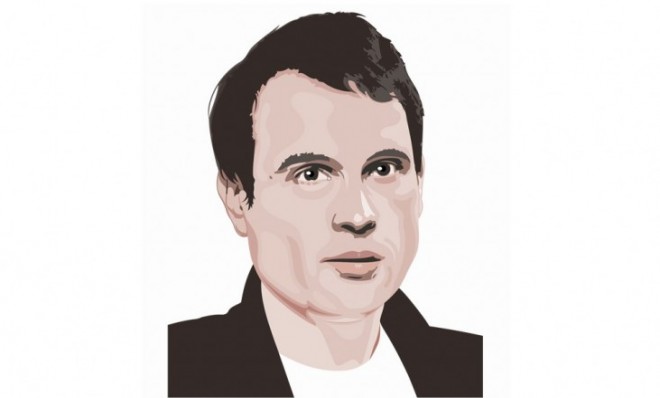Giving thanks to a rebel
He disobeyed orders and saved an untold number of lives


A free daily email with the biggest news stories of the day – and the best features from TheWeek.com
You are now subscribed
Your newsletter sign-up was successful
Luckily for him, Masao Yoshida, 55, was on watch.
He was Fukushima's plant manager, and he was among the 50-odd employees who stayed in the hot zone as radiation levels rose well above toxic levels. He was already a hero, although at that point only a foolish one. Yoshida knew that the reactor was vulnerable to seawater, and in the absence of emergency power or viable containment rods, that natural salty fluid was the only weapon he had. At the same time, he knew that the moment the reactor core came into contact with sea water, the plant itself would be effectively inoperable forever. His bosses at TEPCO ordered him to do nothing while they modeled the potential consequences of injecting seawater into the reactor core. An early attempt to flood part of the core was done improperly, and engineers worried that the contaminated seawater would simply flow back into the ocean. Also, by damaging the reactor this way, too much radioactive gas might be released.
Yoshida and his workers figured out how to prevent backflow of seawater, but TEPCO still ordered him to wait on word from the prime minister. He ignored them, and on his order, decided to flood the bay. Problem: Getting seawater into the core was impossible, or almost impossible, because of the debris and damage done by the earthquake and the flood. Fukishima workers began to use abandoned firefighting equipment to literally pump water in, just gallons at a time, equivalent to a dropper of ink in a well.
The Week
Escape your echo chamber. Get the facts behind the news, plus analysis from multiple perspectives.

Sign up for The Week's Free Newsletters
From our morning news briefing to a weekly Good News Newsletter, get the best of The Week delivered directly to your inbox.
From our morning news briefing to a weekly Good News Newsletter, get the best of The Week delivered directly to your inbox.
TEPCO told him to stop. He conveyed the orders to his crew, telling them simply to ignore what upper management was saying. He had cultivated enough loyalty among his engineers, and they obeyed his disobeyance. TEPCO then said in a press statement that said that there was little risk of a radioactive plume being released because the reactor core hadn't been destroyed; in blunt terms, the radioactive particles were still contained. That was a lie. Yoshida and his crew were successful; they managed to corrode the core.
The next day, Prime Minister Kan was on site, wondering why TEPCO hadn't vented the reactors that were already destroyed. One was literally bulging from the pressure, visible to the naked eye. TEPCO insisted that it had not finished evacuating residents close enough to handle the radioactivity that would be released. According to numerous reports, Yoshida told the prime minister that he would lead a "suicide" mission into the most highly contaminated parts of the plant to begin the venting, even if it meant his own death. When Kan left, Yoshida and crew took to this task. It worked.
The world would learn later that his actions averted a complete meltdown and saved, potentially, tens of thousands of lives, many even a lot more.
Yoshida would learn later that he had cancer, apparently unconnected to the high levels of radiation he was exposed to. He retired in December of 2011. He is alive, and giving some interviews, but outside of Japan, his actions are not appreciated. This post does not do them justice. A movie might, as would a book that places them in the context of crisis decision making and stoicism under intense pressure.
A free daily email with the biggest news stories of the day – and the best features from TheWeek.com
Have a happy Thanksgiving, and take some time to think about the Buddhist Chandler-loving nuclear power plant manager named Masao Yoshida.
Marc Ambinder is TheWeek.com's editor-at-large. He is the author, with D.B. Grady, of The Command and Deep State: Inside the Government Secrecy Industry. Marc is also a contributing editor for The Atlantic and GQ. Formerly, he served as White House correspondent for National Journal, chief political consultant for CBS News, and politics editor at The Atlantic. Marc is a 2001 graduate of Harvard. He is married to Michael Park, a corporate strategy consultant, and lives in Los Angeles.
